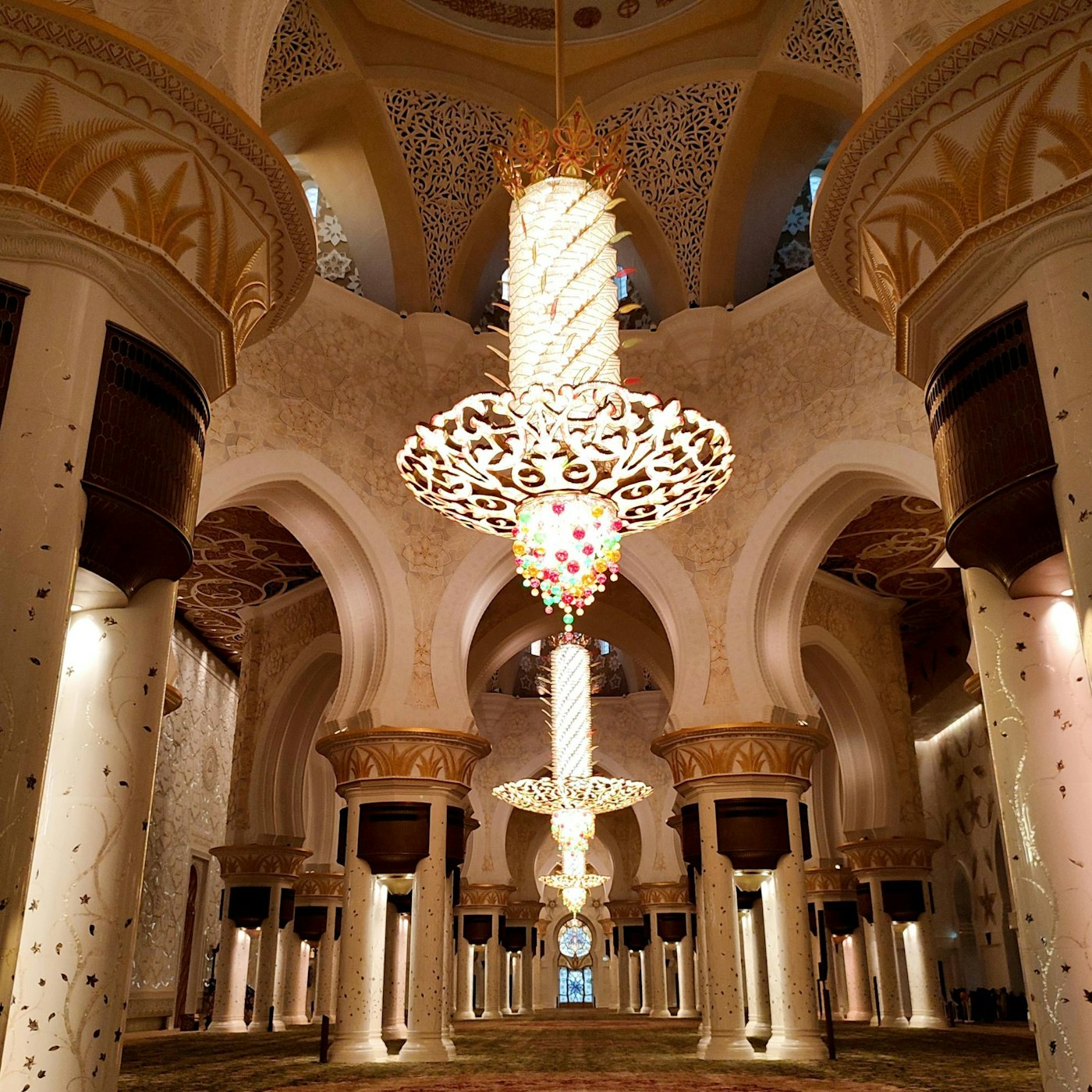
The 10 best nights of the year are here and no matter how much we think we are prepared for it, once they start, panic ensues as we all scramble to make the most of them despite our extensive lists of ibadahs, duas and time management tips.
One powerful way to build our connection with Allah during Laylatul Qadr is through the recitation of specific adhkaar (supplications) that have been recommended by the Prophet Muhammad (ﷺ). Before starting your ibadah for the night, take some time to pause and focus on the recitation and meaning of any of the following adhkaar. The stillness and silence of the night can help you reflect, ponder and worship Allah (SWT) better, ensuring that you are able to strengthen your relationship with Him before the Night of Forgiveness and Power is over.
Jabir bin `Abdullah (ra) narrated that: The Messenger of Allah (ﷺ) said, “The best remembrance is: ‘there is none worthy of worship except Allah (Lā ilāha illallāh)’ and the best supplication is: ‘All praise is due to Allah (Al-ḥamdulillāh).” (Tirmidhi)
1. Affirmation of Tawheed
لا إلهَ إلاّ اللّهُ وحْـدَهُ لا شَـريكَ لهُ، لهُ المُـلْكُ ولهُ الحَمْـد، وهُوَ على كُلّ شَيءٍ قَدير
Lā ilāha illallāhu waḥdahu lā sharīka lah, lahu ‘l-mulku walahu ‘l-ḥamd, wa huwa `alā kulli shay’in qadīr.
“None has the right to be worshipped but Allah alone, Who has no partner. His is the dominion and His is the praise and He is Able to do all things. (Recite 100 times in Arabic upon rising in the morning).”
Whoever recites this one hundred times a day will have the reward of freeing ten slaves. One hundred Hasanaat (rewards) will be written for him and one hundred misdeeds will be washed away. He will be shielded from Satan until the evening. No one will be able to present anything better than this except for someone who has recited more than this. (Al-Bukhari 4/95)
2. Tasbih (Glorification of Allah)
One of the most beloved adhkaar to recite on Laylatul Qadr is tasbih, the glorification of Allah.
Narrated Abu Huraira:
Allah’s Messenger (ﷺ) said, “(The following are) two words (sentences or utterances) that are very easy for the tongue to say, and very heavy in the balance (of reward), and most beloved to the Gracious Almighty (And they are): Subhan Allahi wa bi-hamdihi; Subhan Allahi-l-‘Adhim,” (Sahih Bukhari)
سُبْحَانَ اللَّهِ وَبِحَمْدِهِ، سُبْحَانَ اللَّهِ الْعَظِيمِ
Subhan Allahi wa bi-hamdihi; Subhan Allahi-l-‘Adhim
“Glory be to Allah and all praise is due to him, glory be to Allah the great.”
3. Seeking Forgiveness
Allah (SWT) says in the Qur’an, “Call upon Me, I will respond to you.” (Surah Ghafir 40:60)
What better time to call upon Allah (SWT) and ask for forgiveness than Laylatul Qadr when the gates of heaven are open and Allah is waiting to accept our duas readily?
رَبِّ اغْفِرْ لِي وَتُبْ عَلَىَّ إِنَّكَ أَنْتَ التَّوَّابُ الرَّحِيمُ
Rabbigh fir li wa tub alaiyya innaka anta at-tawwab-ur-raheem
“O Allah forgive me and accept my repentance, for You are the Accepter of repentance, the Most Merciful.”
4. Sending Salawat upon the Prophet Muhammad (ﷺ)
اللَّهُمَّ صَلِّ عَلَىٰ مُحَمَّدٍ وَعَلَىٰ آلِ مُحَمَّدٍ ❁ كَمَا صَلَّيْتَ عَلَىٰ إِبْرَاهِيمَ وَعَلَىٰ آلِ إِبْرَاهِيمَ ❁ إِنَّكَ حَمِيدٌ مَجِيدٌ ❁ اللَّهُمَّ بَارِكْ عَلَىٰ مُحَمَّدٍ وَعَلَىٰ آلِ مُحَمَّدٍ ❁ كَمَا بَارَكْتَ عَلَىٰ إِبْرَاهِيمَ وَعَلَىٰ آلِ إِبْرَاهِيمَ ❁ إِنَّكَ حَمِيدٌ مَجِيدٌ
Allāhumma ṣalli ʿalā Muḥammadin wa ʿalā āli Muḥammad(in), kamā ṣallayta ʿalā Ibrāhīma wa ʿalā āli Ibrāhīm(a), innaka Ḥamīdun Majīd. Allāhumma bārik ʿalā Muḥammadin wa ʿalā āli Muḥammad(in), kamā bārakta ʿalā Ibrāhīma wa ʿalā āli Ibrāhīm(a), innaka Ḥamīdun Majīd.
“O Allah, send prayers upon Muhammad and upon the family of Muhammad just as You have sent prayers upon Ibrahim and upon the family of Ibrahim, verily You are the Praiseworthy, the Glorious. O Allah, bless Muhammad and the family of Muhammad just as You have blessed Ibrahim and the family of Ibrahim, verily You are the Praiseworthy, the Glorious.”
5. Gaining Paradise
The ultimate goal of engaging in dhikr during Laylatul Qadr is to get closer to Allah (SWT) and gain entrance to Jannah. Luckily for us, the Prophet (ﷺ) has blessed us with one of the treasures of Jannah that will help us enter one of its gates.
Abu Hurairah said:
“The Messenger of Allah (ﷺ) said to me: ‘Be frequent in saying: “There is no might or power except by Allah, (Lā ḥawla wa lā quwwata illā billāh).” For verily, it is a treasure from the treasures of Paradise.’” (Tirmidhi)
لاَ حَوْلَ وَلاَ قُوَّةَ إِلاَّ بِاللَّهِ
La hawla wa la quwwata illa billah
“There is no power or might except (by) Allah.”
Abu Musa Al-Ash’ari (May Allah be pleased with him) reported:
The Prophet (ﷺ) said, “The similitude of one who remembers his Rabb and one who does not remember Him, is like that of the living and the dead.” (Bukhari)
May Allah accept our worship, forgive our sins, and shower His mercy and blessings upon us on this blessed Night of Power. Ameen.
Amaliah Team
This article was written by a member of the Amaliah team or a collective team effort. You can follow us on @amaliah_tweets for the latest or head over to our Instagram @amaliah_com. If you're reading this and are thinking about contributing an article then send us an email with a brief or a full article to contribute@amaliah.com